CODE OF CORPORATE GOVERNANCE
Published 09/10/2025
1. Introduction
- 1.1 Corporate governance describes how an organisation directs and controls what it is accountable for. This Code of Corporate Governance is a public statement setting out how South Yorkshire Mayoral Combined Authority (from here on referred to as ‘the MCA’ or ‘the authority’) will fulfil the principles of good governance in practice.
- 1.2 By governance, we mean the arrangements that are put in place to ensure that our intended outcomes (the results of our activity) are defined and achieved. Our Governance Framework comprises the systems and processes, cultures, and values by which we direct and control our activities. This framework ensures we operate effectively, efficiently, and ethically.
- 1.3 To demonstrate good corporate governance, we will carry out our functions in a way that shows accountability, transparency, effectiveness, integrity, and inclusivity. Good governance is about making sure we do the right things, in the right way for the right people, in a timely, inclusive, open, honest and accountable manner. Good governance will enable us to pursue our vision and deliver our agreed objectives in the most effective and efficient manner, bringing about better outcomes for the residents, businesses and visitors to the region.
- 1.4 Our business will also be conducted in accordance with the ‘Seven Principles of Public Life’ identified in The Nolan Committee Report (1995) and in accordance with the Cabinet Office Code of Conduct for Board Members of Public Bodies.
- 1.5 This Code will be reviewed annually to ensure it continues to be relevant and fit for purpose. The effectiveness of the governance arrangements and internal control systems described in this Code will also be reviewed annually and the review outcomes published in an Annual Governance Statement (AGS). The AGS will describe the governance structures and arrangements in place and will report on their effectiveness, including performance against the Code. It will also highlight any significant areas for improvement and identify actions to be taken to address them in the forthcoming year.
2. Governance principles
- 2.1 We have mapped our Governance Framework against the principles of the Chartered Institute of Public Finance and Accountancy (CIPFA) / Society of Local Authority Chief Executives (SOLACE) Framework Delivering Good Governance in Local Government 2016. These principles are dynamic and involve continuous evaluation, review, and improvement. The following sections describe how we fulfil the requirements of the seven principles.
3. The Principles of Good Governance
Principle A
- A. Good governance means ensuring Officers behave with integrity, demonstrate a strong commitment to ethical values and respect for the rule of the law
- A.1 We uphold the values and high standards of conduct and behaviour of our constituent and non-constituent local authorities. These high standards are supported by Codes of Conduct for Members and Officers, which are incorporated into the MCA Constitution, and set out the standards required of all members, co-opted members, and officers in carrying out their duties. These Codes include, as a general obligation, that members must have regard to the Principles of Public Life as identified in the Nolan Committee Report (1995). Protocols in relation to the disclosing of interests at meetings and the registering of interests both pecuniary and non-pecuniary are also included in this section of the Constitution. These declarations are published on the website. These Codes, standards and obligations extend to the Business Advisory Board and Mayor’s Economic Council, whose terms of reference form part of the Constitution.
- A.2 The Constitution also describes the delegations to the Monitoring Officer in relation to their contribution to the promotion and maintenance of high standards of conduct and outlines the responsibilities of members to notify the Monitoring Officer regarding the receipt of gifts or hospitality. In addition, the Constitution outlines our approach to dealing with the threat of fraud and corruption as well as setting out a Fraud Response Plan and our commitment to openness, probity and accountability through our Whistleblowing Policy.
- A.3 The Overview and Scrutiny Committee and Audit, Standards and Risk Committee are statutory committees and hold us to account providing a ‘check and balance’ in relation to the discharge of our duties.
- A.4 We are committed to ensuring compliance with relevant laws and regulations, internal policies and procedures, and that expenditure is lawful. Reports of any breaches or potential breaches will be fully investigated by our internal audit partners.
- A.5 Standard contract clauses stating compliance with applicable laws relating to anti-bribery, anti-corruption, human rights, human trafficking and counter terrorism, information laws and environmental regulations are included in our contracts with all external service providers.
- A.6 We will strive to attain and optimise the use of full powers available for the benefit of citizens, communities, and other stakeholders, through the strategically aligned investment of gainshare monies and using the additional borrowing powers derived from the devolution deal.
Principle B
- B. Good governance means ensuring openness and comprehensive stakeholder engagement
- B.1 We recognise that we have been established for the public good and should therefore ensure openness in our activities. We aim to ensure clear, trusted channels of communication are used to engage effectively with our stakeholders.
- B.2 We do this by:
- Documenting and demonstrating our commitment to openness through, but not limited to, the publishing of agendas and minutes and of Codes of Conduct, and through publicly held MCA Board and statutory committee meetings. Ensuring public records and explanations to stakeholders include clear reasoning and evidence for decisions made and provide clear justification regarding any information or decisions that require confidentiality
- Having a clear policy on the type of issues that we will meaningfully consult on using appropriate channels of engagement and communication, and effective feedback mechanisms
- Encouraging, collecting, and evaluating the views and experiences of communities, businesses and residents of South Yorkshire, balancing the views of more active stakeholders and those less heard, to ensure inclusivity when developing strategies, plans and services, as well as taking into account the impact of decisions on future generations of taxpayers and service users
- Incorporating good governance arrangements into partnerships and other joint working to ensure relationships challenge our thinking and support the development and design of high-quality strategies and plans
- Effectively engaging with institutional stakeholders[1] to ensure that the purpose, objectives and intended outcomes for each stakeholder relationship are clear so that outcomes are achieved successfully and sustainably
- Developing formal and informal partnerships, based on trust and a shared commitment to change, to allow for resources to be used more efficiently and outcomes achieved more effectively.
Principle C
- C. Good governance means outcomes are defined in terms of sustainable economic, social, and environmental benefits
- C.1 We recognise that the long-term nature and impact of any actions we take means that planned, defined and sustainable outcomes are vital, and the decisions we make should further our aims and contribute to intended benefits and outcomes.
- C.2 To ensure this we:
- Have in place a formal statement, in the form of a Strategic Economic Plan (SEP) 2021-2041 and other supporting plans including the Plan for Growth, Skills Strategy and local authority led Place Plans, that describe our vision and set out our objectives of building a stronger, greener fairer South Yorkshire. These plans and strategies include key indicators, targets and outputs that will be reviewed regularly and take into account wider economic, social and environmental changes to identify and manage risks to the achievement of outcomes
- Appraise schemes seeking investment against a robust set of criteria that consider and balance the combined economic, social, and environmental impact of policies and plans at the earliest possible opportunity
- Have in place a comprehensive monitoring and evaluation framework that sets out how our projects and programmes will be assessed using performance metrics and indicators, during their delivery and post-delivery phases, to understand the impacts of the investment made in South Yorkshire
- Will take a longer-term view with regard to decision making, taking account of risk and acting transparently where there are potential conflicts between our intended outcomes and short-term factors
- Will determine the wider public interest associated with balancing conflicting interests between achieving the various economic, social and environmental benefits to ensure appropriate trade-offs.
Principle D
D. Good governance means determining and planning the interventions necessary to optimise the achievement of the intended outcomes
- D.1 We are committed to ensuring robust decision-making mechanisms and processes are in place that enable decision-makers to be fully informed and confident that decisions take into account the needs and ambitions of the region, and that defined outcomes can be achieved.
- D.2 To achieve this we:
- Develop relationships with leading academics and critical friends to challenge our thinking and support the development and design of high-quality strategies and plans, providing options to decision makers based on objective, robust information including an outline of the risks involved
- Ensure, as appropriate, that the views of stakeholders, citizens and service users are considered in the decision-making process to balance competing demands for limited resources including people, skills, land and assets and bearing in mind future impact
- Ensure decision-making arrangements are robust but flexible enough to adapt to changing circumstances and service requirements
- As part of the planning process, ensure appropriate performance indicators are established for commissioned projects and services to provide clarity on how performance will be measured
- Ensure there is sufficient capacity/resource to generate the information required to review and monitor the performance of projects and services
- Regularly review and audit the quality and accuracy of data used in decision making and performance monitoring
- Use realistic estimates of revenue and capital expenditure to inform medium and long-term resource planning to develop a sustainable funding strategy
- Ensure the achievement of ‘social value’[2] through planning and commissioning
Principle E
- E. Good governance means developing the entity’s capacity, including the capability of its leadership and the individuals within it
- E.1 We are committed to ensuring an appropriate structure and effective leadership is in place and that there is organisational capacity to fulfil our aims.
- E.2 To do this we:
- Have in place a clear corporate vision, that is regularly shared and understood, setting out the direction of the organisation.
- Regularly review our organisational performance via a substantive organisational review of capacity and capability.
- Have in place governance arrangements to support a culture of empowerment and accountability including appropriate delegations to officers and clarity on the decisions reserved for the MCA Board
- Ensure Statutory Officers have the skills, resources and support to effectively perform their roles in a changing environment and in preparation for further phases of devolution
- Have in place an effective workforce plan including recruitment, development and appraisal which supports the strategic allocation of resources
- Provide opportunities for Members to enhance and strengthen their knowledge and skills, in relation to their strategic roles, by providing training and development opportunities as necessary
- Ensure a clear protocol exists to support a constructive working relationship between Members and Officers and seek to develop partnerships and collaboration where most value can be added
- Take steps to consider leadership effectiveness and ensure leaders are open to constructive feedback from peer review and inspections
- Ensure arrangements are in place to maintain the health and wellbeing of the workforce and support individuals in maintaining their own physical and mental wellbeing
- Ensure organisational development through shared learning, including lessons learnt from internal and external governance weaknesses
Principle F
- F. Good governance means risks and performance are managed through robust internal control and strong public financial management
- F.1 We recognise that effective performance management underpins the effective and efficient delivery of intended outcomes, and that risk management is a vital and integral part of this. We are committed to ensuring a strong system of financial management is in place to enforce financial discipline, strategic allocation of resources, efficient service delivery and accountability. Underpinning this is a culture and structure encouraging scrutiny and challenge.
- F2 To achieve this we:
- Set out desired benefits and outcomes in our clearly defined investment plans to ensure financial management supports both long term achievement of outcomes and short-term financial and operational performance, balancing service priorities, affordability and other resource constraints
- Ensure effective arrangements and delegations are in place for the Chief Financial Officer to discharge their functions and leadership responsibilities, utilising a properly resourced and skilled Finance team with embedded compliant processes and robust internal control to ensure that all expenditure is lawful
- Review the effectiveness of our decision-making framework, including delegation arrangements regularly including ensuring risk management arrangements are robust, effective and integrated in all aspects of decision making
- Ensure commissioned projects and services are monitored effectively at all stages and progress is reported regularly
- Ensure secure, robust, and effective arrangements are in place regarding the processing of data (including personal data), this includes (but is not limited to) mandatory Data Protection training for all Officers and data sharing
- Gain assurance on risks associated with delivering services through third parties.
Principle G
- G. Good governance means good practices in transparency, reporting and audit to deliver effective accountability are implemented
- G.1 We are committed to ensuring good practice in transparency, reporting and audit arrangements to deliver effective accountability.
- G.2 To achieve this we:
- Publish all agendas and reports for the MCA Boards Committees in accordance with statutory access to information requirements, ensuring they are presented in a fair, balanced, and understandable style and hold the MCA Board and statutory committee meetings in public, unless there are good reasons to exclude the press and public
- Regularly review the effectiveness of our decision-making framework, including delegation arrangements, to ensure Statutory Officers and Directors are able to discharge their functions and leadership accountabilities
- Have in place an effective and active Audit, Standards and Risk Committee, who are accountable to the MCA and, amongst other responsibilities, lead on ensuring we have robust, effective risk management arrangements in place, that are understood and implemented, and that these are evaluated regularly
- Have in place robust arrangements for internal and external audit to provide assurances over the effectiveness of systems of internal control and ensure senior management take ownership of the results of any evaluation
- Ensure that our Annual Accounts are reviewed by external auditors and that their opinion together with the final accounts are published and are available for inspection
- Ensure effective and robust internal controls are in place including counter fraud and anti-corruption arrangements
- Keep governance arrangements under review and have in place an action plan for improvements, including responding to recommendations made by external audit
- Welcome peer challenge, reviews, and inspections from regulatory bodies.
4. Monitoring and review of governance
- 4.1 We recognise the importance of good governance in maintaining and enhancing stakeholder confidence. Each year we publish an Annual Governance Statement (AGS) together with our Annual Accounts. This statement is prepared following an internal review of governance arrangements and outlines actions identified to strengthen them.
- 4.2 The review is informed by the work of:
- The Statutory Officers who have responsibility for the development and maintenance of the governance environment
- The Internal Auditor’s annual report and opinion, and by comments made by the external auditors and other review agencies and inspectorates
- The Chief Financial Officer who has statutory responsibility for ensuring the proper management of the financial affairs
4.3 The framework for evaluating the effectiveness of internal control includes:- An evaluation of progress against previously identified governance issues
- Reviews of:
- The Statutory Officers who have responsibility for the development and maintenance of the governance environment
- The Internal Auditor’s annual report and opinion, and by comments made by the external auditors and other review agencies and inspectorates
- The Chief Financial Officer who has statutory responsibility for ensuring the proper management of the financial affairs.
[1] institutional stakeholders are the other organisations that we need to work with to improve services and outcomes
[2] Social value is defined through the Public Services (Social Value) Act (2013) which requires all public sector organisations and their suppliers to look beyond the financial cost of a contract to consider how the services they commission and procure can improve the economic, social and environmental wellbeing of an area.



